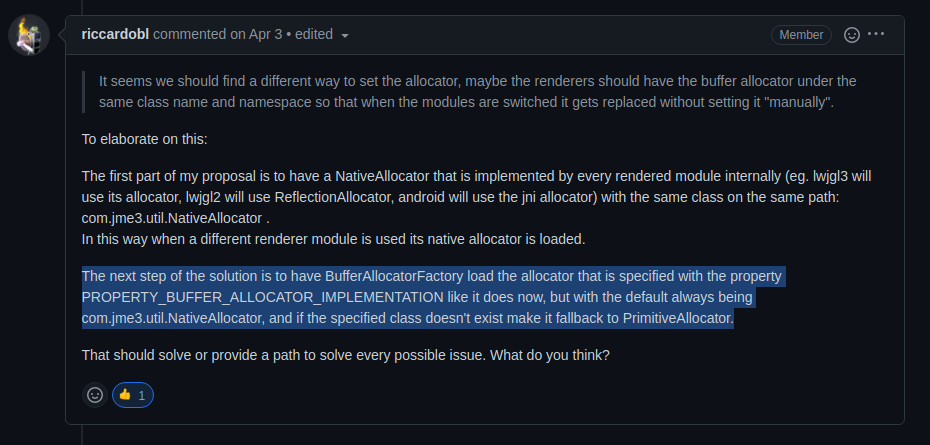Hello fellows,
Following the discussion on this issue #ReflectionAllocator is broken on JDK 16 #1674, the final agreement was using ByteBuffer.allocateDirect(int capacity) isn’t sufficient because it creates the urgency to destroy this buffer using Reflection, but now the only module using this approach is lwjgl2.
So, i opened this discussion for this particular topic to see what are the next steps to take to resolve this issue, i suggest we may try to unify the BufferAllocator on the jme3-desktop module (but this will require either lwjgl3 MemoryUtil class or jni bindings ?), so instead of LwjglBufferAllocator, it will be DesktopBufferAllocator.
BTW, i have created a PR, it resolves android issues with the ReflectionAllocator by creating a native binding #PR-Android-Buffer-Allocator, check it out if it needs something.
Do i need to do something about this step ?
Thank you !
